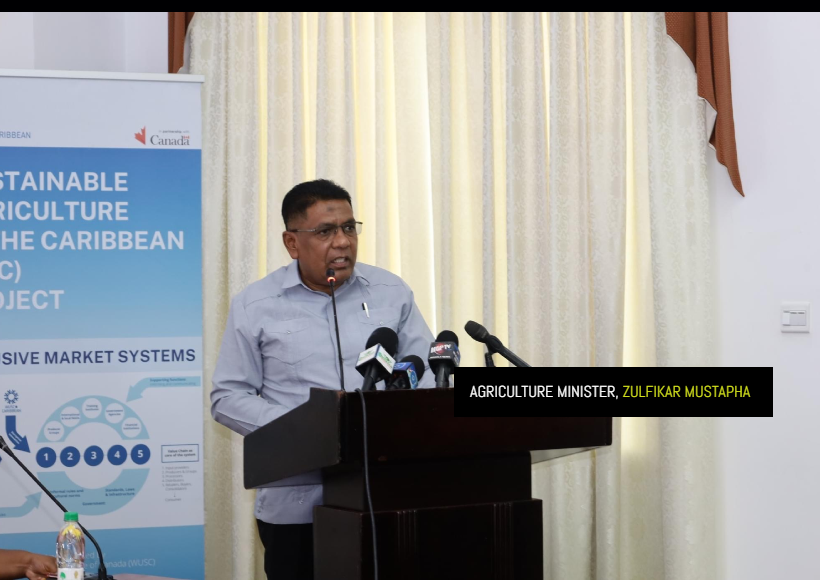The construction of Guyana’s tissue culture facility is on track for completion by the first quarter of 2025, with production capacity set to soar from 13,000 to one million plantlets annually. This development is expected to significantly enhance the country’s food production capabilities and address the growing demand for planting materials.
During a community engagement at the Beterverwagting Community Centre last Saturday, Minister of Agriculture Zulfikar Mustapha emphasized the facility’s importance. He explained that it will help meet the increasing needs of farmers and advance Guyana’s aspirations to become a regional food hub.
Currently, the country operates 11 nurseries, but these are insufficient to meet the rising demand for planting materials. Minister Mustapha stressed the need for this facility, noting, “The couple of seeds and planting materials that we are giving out cannot prepare our country to be that food hub that we want it to be. This tissue culture lab will produce millions of planting materials… We have an international company that is working with us.”
The facility, which is under construction at the National Agricultural Research and Extension Institute (NAREI) in Mon Repos, East Coast Demerara, will employ advanced tissue culture and micropropagation techniques. It is designed to produce a diverse range of high-quality planting materials, including disease- and pest-resistant varieties of citrus plants, to cater to farmers’ specific needs.
The cutting-edge lab will enable farmers to reduce reliance on chemicals, supporting more sustainable farming practices. Last year, the Government of Guyana and India’s Energy Resource Institute (TERI) signed an agreement to establish the facility.
Tissue culture and micropropagation involve using small fragments of plant tissue from carefully selected mother plants to propagate new plants in a controlled laboratory environment. This method ensures the production of high-yield, robust plantlets.
By investing in this state-of-the-art facility and adopting climate-smart agricultural practices, Guyana is solidifying its position as the leading food exporter in the Caribbean. These efforts are expected to contribute to reducing the region’s food import bill by the end of 2025.













